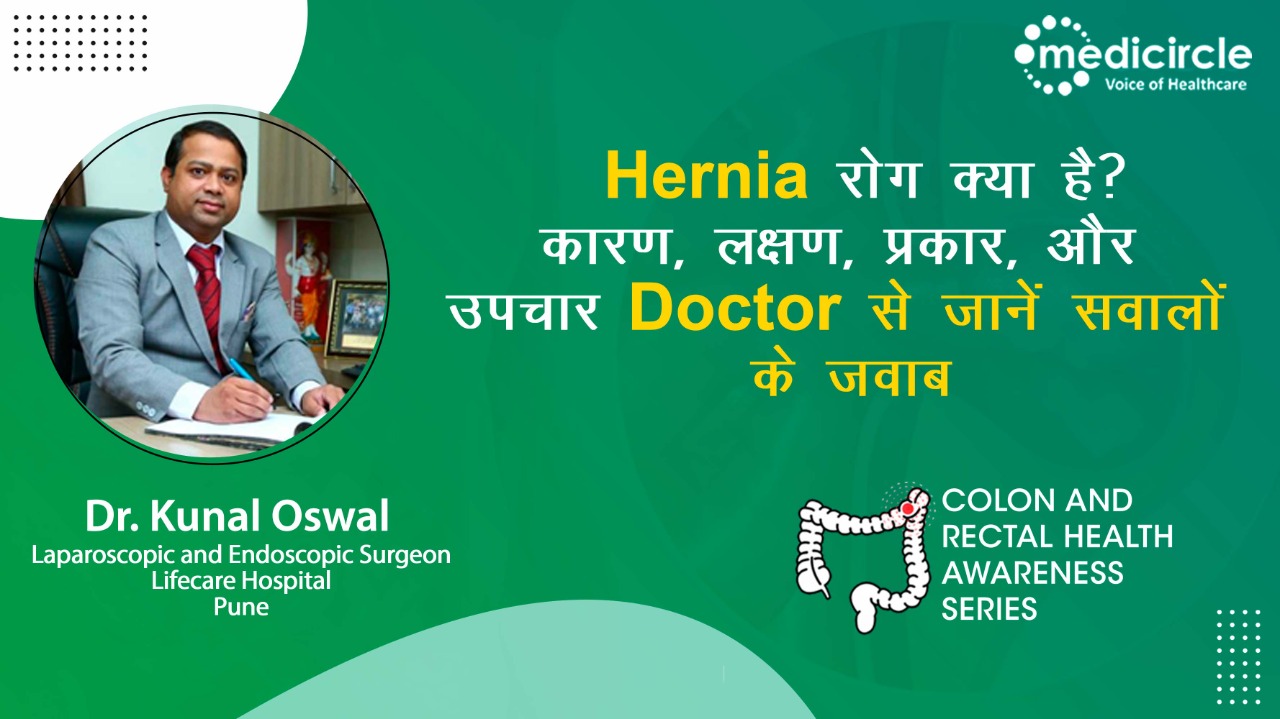Dr. Kunal Oswal is a renowned Laparoscopic and endoscopic Surgeon in Pune and currently practicing at Lifecare Hospital, Pune. For the past 16 years, he has worked as a Laparoscopic and endoscopic Surgeon. He is a member of the Maharashtra Medical Council and the Indian Association of Surgical Oncology (IASO).
Hernia
Dr. Kunal says, "The hernia is an outpouching of the intestine or abdominal content. The abdomen has several muscle layers and if abdominal pressure increases, content tries to protrude from the rent.
Inguinal hernia is very common in small children and adult men. In men, the inguinal canal is a passageway for the spermatic cord and blood vessels leading to the testicles. This makes them weak. Certain activities like increased muscular activity, smoking, coughing, or any kind of liver disease increase the pressure of the abdomen. To accommodate this extra pressure, the abdomen tries to come out from the areas which are weak. It tries to stretch it and at some point, the muscle gets torn apart. This causes defects, a rent. And through this rent, the abdominal content starts coming out."
Signs of hernia
Abnormal lump on the abdomen which increases with coughing, motion, or strength and decreases when lying down.
Types of hernia
- Inguinal hernia
- Umbilical hernia
- Incisional hernia - Tissue protrudes through the site of an abdominal scar from a surgery
- Spigelion hernia
Of these, the most common are Inguinal hernia or Umbilical hernia
Risk and complications
Dr. Kunal stresses, "Depending on the abdominal pressure, the contents of the intestine come out and go in. When a person coughs very loudly, a large amount of content comes out which gets caught in the weakened area. The surrounding muscle then clamps down around the tissue, cutting off the blood supply to the small intestine. This is called a strangulated hernia. It is a medical emergency. It causes gangrene and can get fatal. This is the commonest complication of hernia."
Treatment of hernia
Dr. Kunal informs, "There is no medical treatment for the hernia. Surgery is the only option available. In surgery, the protruding tissue is set back in place and the weakened muscle wall is stitched back together. And a type of mesh is implanted in the area to provide extra support. Surgery is performed by open or laparoscopic method. Surgery is avoided only when the patient is at very high risk or can’t be given anaesthesia. But surgery is the only option left."
FAQs
1. Does hernia only affect men?
Yes
2. Does Hernia only happen in the stomach?
Hernia can occur in the chest, and in any close cavity even in the brain too.
3. Is Laparoscopy surgery for Hernia, a painful procedure?
Laparoscopic surgery is less painful than open surgery.
(Edited by Renu Gupta)

 A hernia happens when an internal organ pushes through a weak spot in your muscle or tissue. It can have severe complications and can get fatal too. If you have a hernia, it’s important to treat it quickly.
A hernia happens when an internal organ pushes through a weak spot in your muscle or tissue. It can have severe complications and can get fatal too. If you have a hernia, it’s important to treat it quickly.







.jpeg)


.jpg)









.jpeg)





.jpg)




.png)



